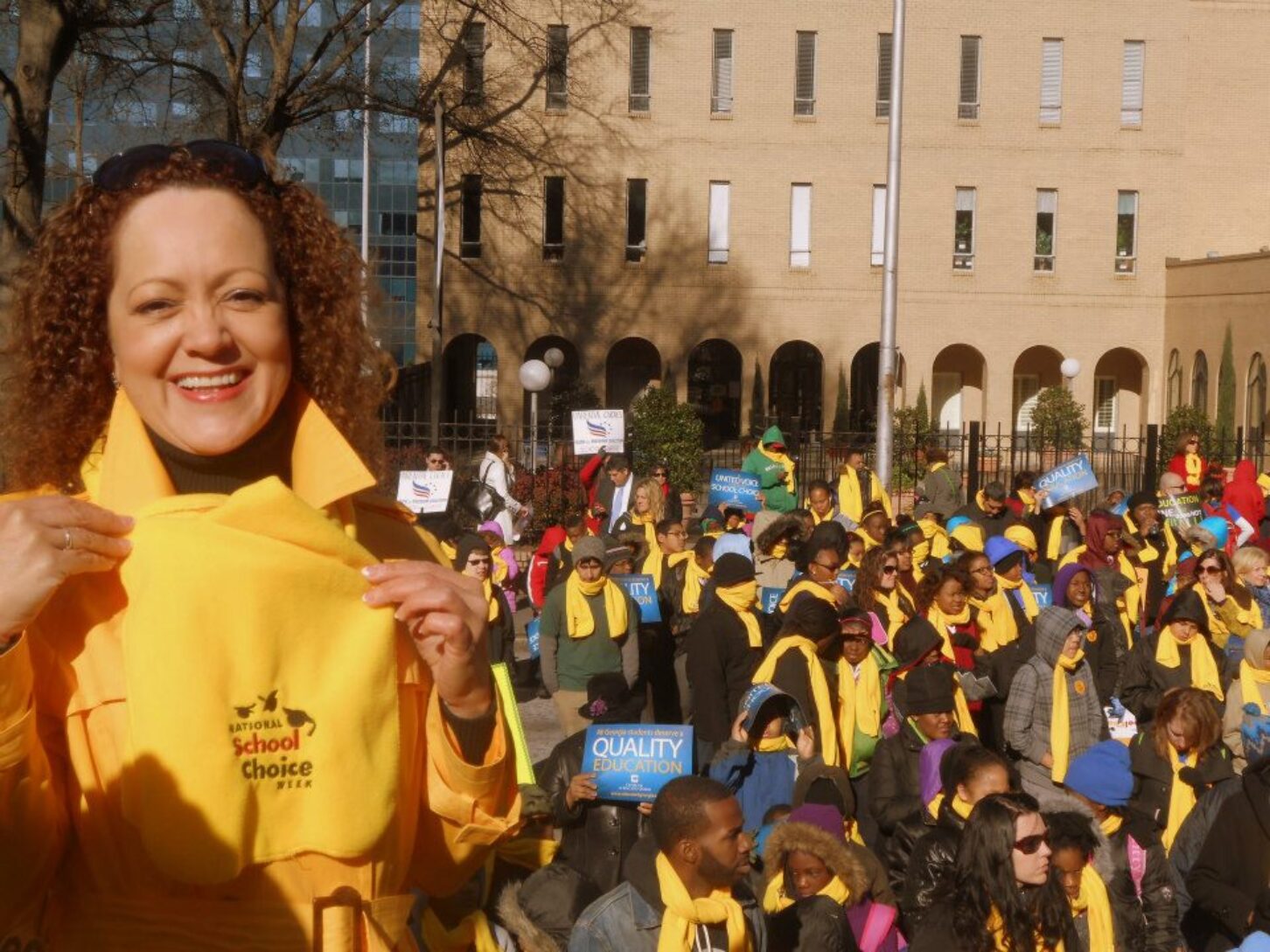
The Marietta Daily Journal quotes Foundation President Kelly McCutchen in a January 31 article about the Foundation’s Leadership Breakfast celebrating National School Choice Week.
The text is below; access the article online here.
State senators speak out on alternatives to public school
By Jon Gargis

CUMBERLAND — Hours before a downtown Atlanta rally focused on school choice, state Sen. Hunter Hill, R-Smyrna, and Georgia Public Policy Foundation officials were among those who spoke of alternatives to public school education and the way the state funds it.
“If you’re concerned about economic inequality, economic opportunity is what we need to promote. That’s what school choice is all about — making sure that everyone in our society has a great opportunity for a good education,” said Kelly McCutchen, president and CEO of the nonprofit and nonpartisan Georgia Public Policy Foundation, which hosted a leadership breakfast at the Georgian Club in Cumberland titled “Georgia Education: Reforms and Recommendations.”
“People ask, ‘What do you mean by school choice?’ If you have more than one child, you understand this, or if you have siblings: Kids are very different,” McCutchen added. “Even if they grow up in the same family, they have different needs, and school choice is all about giving parents options so they can find out what’s best for their child. It may be public, it may be private, it may be online, it may be a hybrid school, it could be homeschool. We need to empower individuals to obtain this.”
Hill was among the event’s guest speakers. He said that while some consider school choice to be controversial, it shouldn’t be. Rather, it should be about finding ways to help families no matter their income. The current school funding model, he said, is unfair to both the wealthy and the non-wealthy.
“It is unfair on two fronts — the wealthy would pay taxes to fund public education and get no benefit for it, just like it’s unfair that the only way to get to a high-end private school is to have money,” Hill said. “People that pay taxes should be able to have some of that money be used for the education of their children, and I’m fine with doing income caps and giving the rich less, but everyone’s paying in, and everybody should get a benefit.”
Hill is the sponsor of Senate Bill 92 — dubbed the Education Savings Account Act. If the bill is passed, the state money that would go to a school district for a student would instead be put into a savings account and would be accessible for any qualifying education-related expense, such as tutoring, music lessons, books or private school tuition. The education savings account would be able to help students for whom public schools are not the right fit.
The bill was introduced last year but did not make it out of the Senate. It remains alive in this, the second year of the two-year regular legislative session.
“If my education savings account were to pass, and the entire state portion of the money could follow the child, a parent is now equipped with about $4,500, give or take. When thousands of people are now equipped with a $4,500 voucher, then the cost of innovative ideas in education will go down,” Hill said. “That’s what we see in the marketplace.”
Tana Page is executive director of Educators First Inc., a professional association for educators with more than 5,000 members, including more than 1,800 in Cobb. She said the organization has not taken an official position on SB 92 nor on any other bills pertaining to education savings accounts.
“However, we have taken an official position that we don’t want money drained out of the public school system,” Page said, adding that members are currently being surveyed on the issue, the results of which will be used to determine the organization’s official stance.
Wednesday’s breakfast fell in the middle of “School Choice Week” in Georgia, during which more than 400 events are scheduled across the state in observance of it. It coincides with the National School Choice Week campaign. The goal of the events — which are independently planned by schools, organizations and individuals — is to raise awareness of K-12 education options for children and families in communities across the country.
Following the breakfast, officials with and supporters of the Georgia Public Policy Foundation were slated to gather with school choice supporters at the Capitol for a midday rally where representatives from all educational options, from public to private to homeschooling, were to share their stories on how school choice impacted their lives. The Atlanta event is one of 20 similar events scheduled to be held around state capitols across the country during the week.